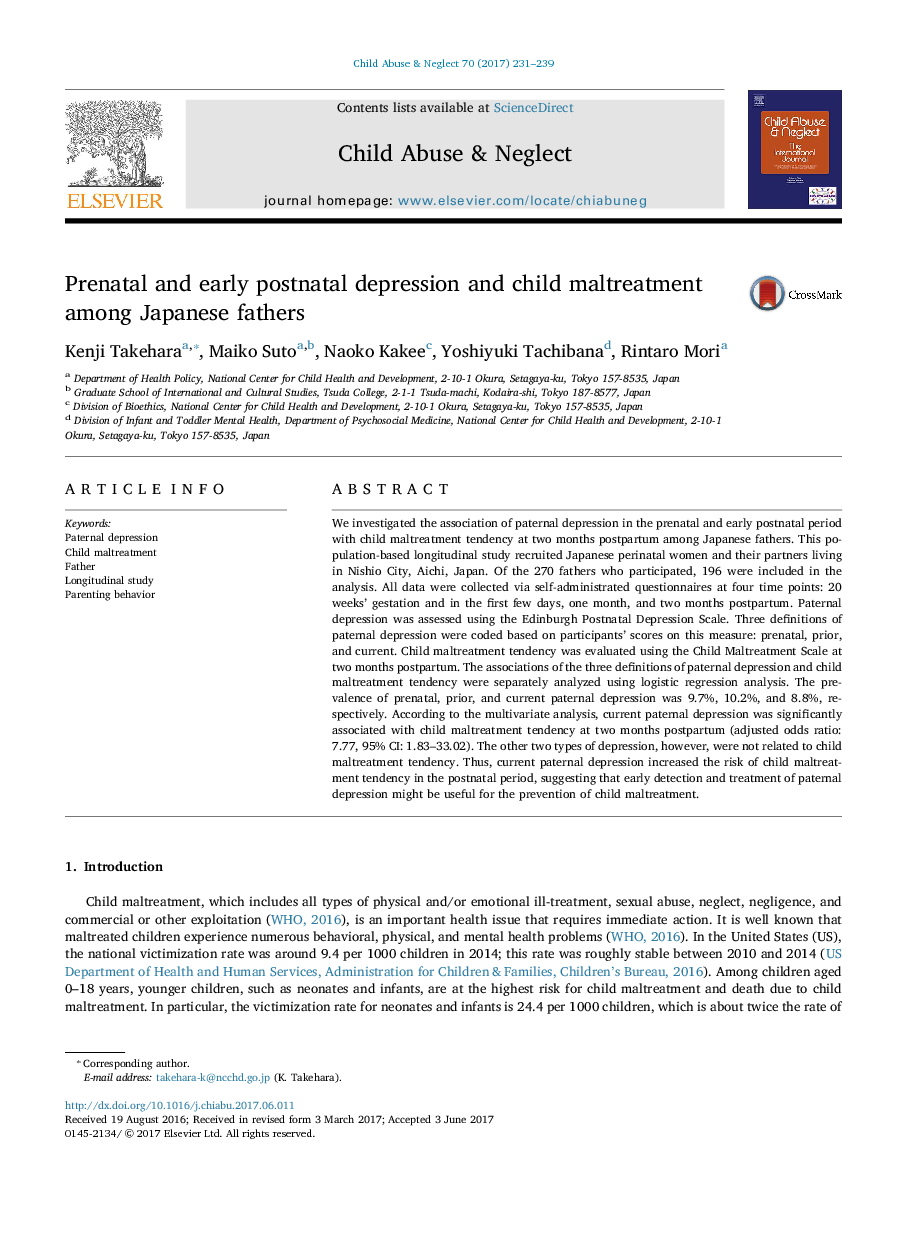ترجمه فارسی عنوان مقاله
افسردگی پس از زایمان و زودرس پس از زایمان و سوء رفتار با کودک در میان پدران ژاپنی
عنوان انگلیسی
Prenatal and early postnatal depression and child maltreatment among Japanese fathers
| کد مقاله | سال انتشار | تعداد صفحات مقاله انگلیسی |
|---|---|---|
| 124618 | 2017 | 9 صفحه PDF |
منبع

Publisher : Elsevier - Science Direct (الزویر - ساینس دایرکت)
Journal : Child Abuse & Neglect, Volume 70, August 2017, Pages 231-239
ترجمه کلمات کلیدی
افسردگی پدرانه، بدرفتاری با کودک، پدر، بررسی طولی، رفتار والدین،
کلمات کلیدی انگلیسی
Paternal depression; Child maltreatment; Father; Longitudinal study; Parenting behavior;

